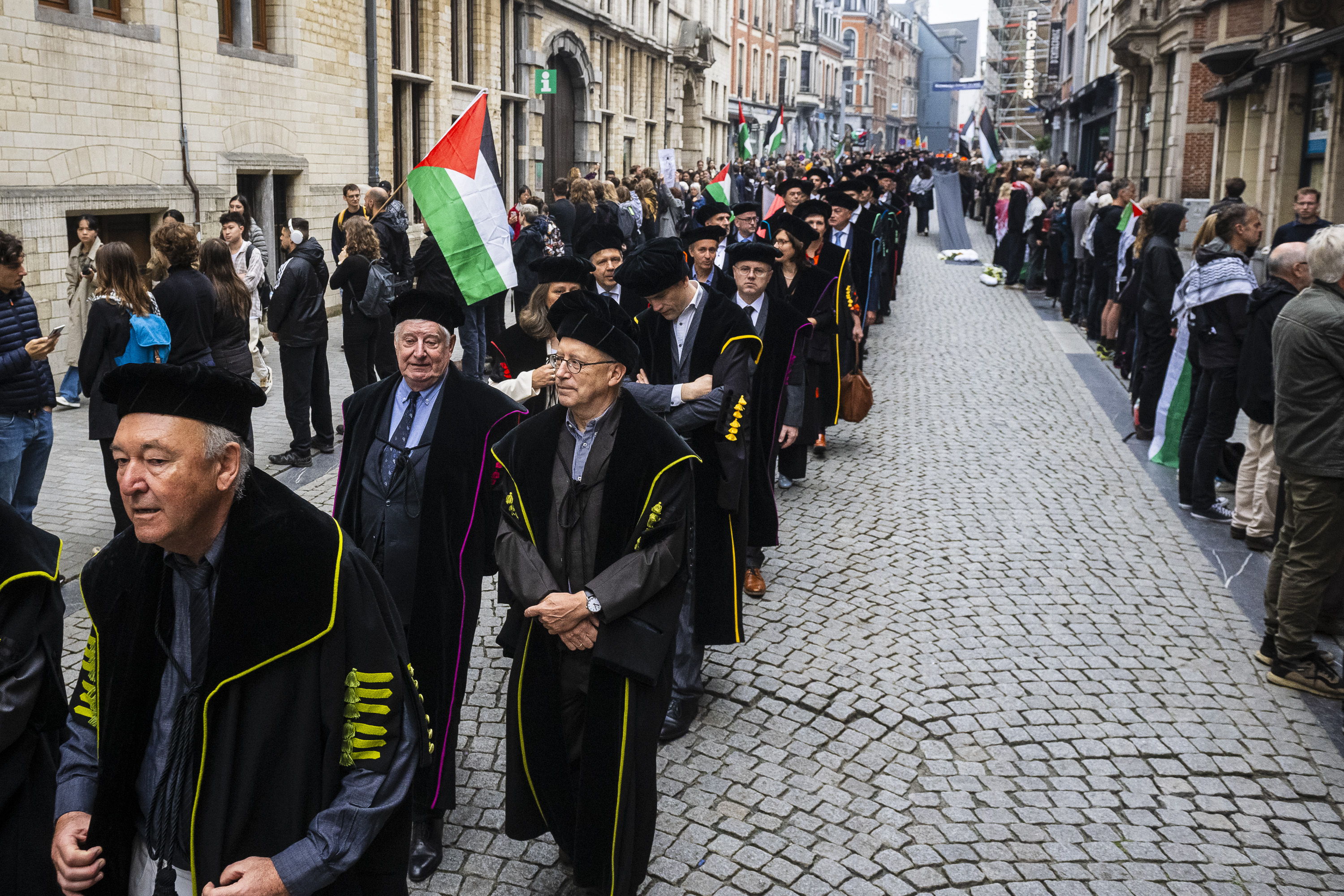Pro-Palestinian activists turn backs on annual procession of robes at KU Leuven

On Wednesday, over 200 pro-Palestinian activists staged a symbolic protest during KU Leuven's annual procession of robes by turning their backs as the university’s rector, Luc Sels, and other professors passed by. The demonstration took place along Naamsestraat, where the march moved from the University Hall to Sint-Pieterskerk on the Grote Markt, passing what the activists called a "wall of shame."
The procession of robes is a long-standing KU Leuven tradition marking the start of the academic year. Around 100 professors and university members, dressed in ceremonial robes, walk to Sint-Pieterskerk for a Eucharistic service before heading to the Aula Pieter De Somer for the rector’s opening speech. However, this year’s procession was notably slowed by the presence of activists, who expressed their discontent with KU Leuven’s ongoing collaborations with Israeli universities and the recent eviction of pro-Palestinian student occupiers from the De Valk College building.
As the procession passed, the activists turned their backs on Rector Sels and the faculty. Some professors, dressed in robes themselves, joined the protest along the symbolic "wall of shame." The protest largely remained calm, although there was a brief moment of tension when four activists walked against the direction of the procession, holding symbolic items, including a watermelon and rolled-up blankets—meant to represent the young victims of the ongoing conflict in Gaza.
© BELGA VIDEO INE GILLIS
Ongoing protests on campus
The demonstration comes on the heels of a four-month occupation of the De Valk College building by pro-Palestinian students. The occupation was a direct protest against KU Leuven’s collaboration with Israeli institutions. However, the students were removed from the building on Saturday after the university won a legal case against them at the Justice of the Peace.
Rector Sels, addressing the situation earlier on Wednesday, defended the university's actions and preference for dialogue over protest. "An occupation is not a good way to make your point of view clear," Sels said. "What you are saying then is that you have an opinion, but that you want to impose it on the other. I am in favour of dialogue: now that the occupation has ended, there is room for dialogue again. In previous discussions, the speaking time was too limited or I was deprived of speaking time."
Sels noted that while the university and the protesting students share similar views on the Israeli-Palestinian conflict, they differ in their approach. "The students are calling for a complete boycott; we look at each project to see if there is a risk of human rights violations," he explained. "That is another approach, which we can also apply to countries other than Israel. If we were to boycott Israel, because of the ties between the university and the financing government, we would have to stop working with many countries. Not least with countries from the Global South, and that would take us further away from our mission as a university."
Meanwhile, a separate group of activists staged a protest across the Grote Markt. About 20 members of the animal rights group Animal Rights gathered to call for an end to animal testing at KU Leuven, a demand they make annually at the start of the academic year.
#FlandersNewsService |Students and activists staged a protest during the academic procession celebrating the start of the academic year at KU Leuven on 18 September, 2024 © WIKTOR DABKOWSKI/ZUMA PRESS WIRE
Related news

